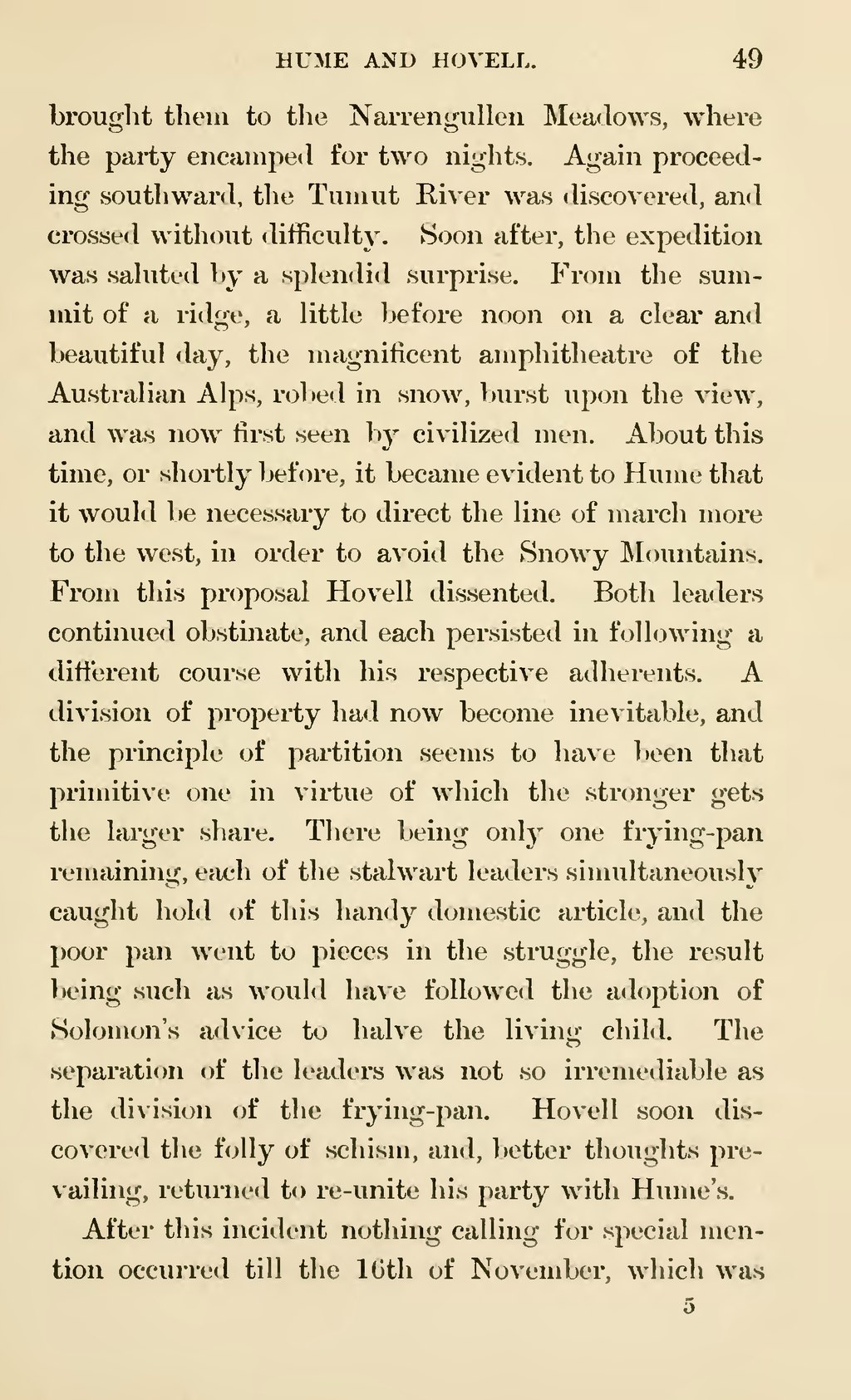brought them to the Narrengullen Meadows, where the party encamped for two nights. Again proceeding southward, the Tumut River was discovered, and crossed without difficulty. Soon after, the expedition was saluted by a splendid surprise. From the summit of a ridge, a little before noon on a clear and beautiful day, the magnificent amphitheatre of the Australian Alps, robed in snow, burst upon the view, and was now first seen by civilized men. About this time, or shortly before, it became evident to Hume that it would be necessary to direct the line of march more to the west, in order to avoid the Snowy Mountains. From this proposal Hovell dissented. Both leaders continued obstinate, and each persisted in following a different course with his respective adherents. A division of property had now become inevitable, and the principle of partition seems to have been that primitive one in virtue of which the stronger gets the larger share. There being only one frying-pan remaining, each of the stalwart leaders simultaneously caught hold of this handy domestic article, and the poor pan went to pieces in the struggle, the result being such as would have followed the adoption of Solomon's advice to halve the living child. The separation of the leaders was not so irremediable as the division of the frying-pan. Hovell soon discovered the folly of schism, and, better thoughts prevailing, returned to re-unite his party with Hume's.
After this incident nothing calling for special mention occurred till the 16th of November, which was
